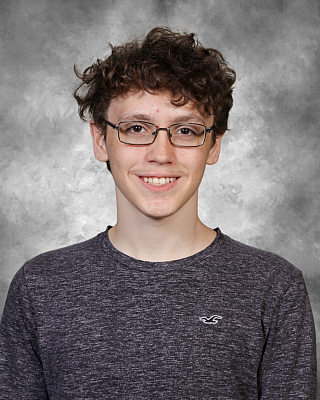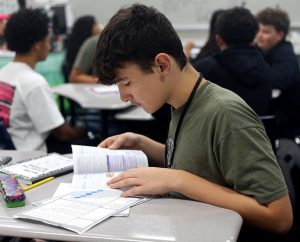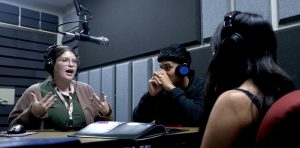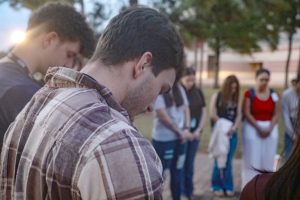Advisory period targets social, emotional learning
Jan 20, 2021
In order to encourage social and emotional learning, school administrators have implemented a new advisory period.
During the 30 minutes the school sets aside during fifth period, students engage in lessons to help them plan for the future on college and career curriculum, learn how to cope with various social or emotionally challenging situations, and catch up on other classwork.
“A few years ago, we had CCAT time for 30 minutes each Tuesday and Thursday and that was like advisory,” Principal Dr. Jeffrey Stichler said. “Kids really liked the chance to get some of their work done.”
However, some teachers viewed the extra time as a better way to help students with more than just a study hall.
“It provides a dedicated space to develop our community’s social-emotional literacy, a skill set that is correlated with improved personal and professional outcomes,” said economics teacher Heather Camp Lopes, who developed the lessons. “It provides an opportunity to create community around non-academic subjects, and gives each student the chance to be specifically dedicated to their success in this space, someone who is going to check in with them, see how school is going, how life is going, and follow up with them on challenges and successes.”
This included targeted lessons for students of different grade levels to plan ahead on college and/or their future careers.
Many students view the time that was allotted as a new way to accomplish other school work.
“I like advisory because it’s helped me during these weird times to stay on top of my school work and stay mentally stable,” junior Keno Sunderland said.
This time can be really helpful to reduce some homework time, and allow students some more time in school to catch up on assignments.
Not everyone is a fan. Some call it unnecessary and a waste of time.
“No one does anything and it takes up time,” sophomore Alexandria Jacob said. “I see advisory as useless but I’m normally always on top of my work. So, it’s just time I spend on my phone.”
Camp Lopes said the goal is to do whatever the school can to get students a better shot at post-high-school life.
“We are working towards doing what we can as a school to know that when you cross that stage at graduation you are a little bit better prepared for your future, no matter what that future looks like,” she said. “You guys are why we are here and whatever we can do to support you when you leave our care is vital.”








